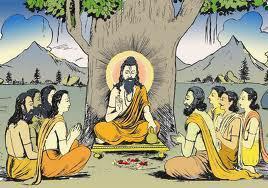Raj Shankar's Blog, page 48
June 14, 2013
Books and Me: Manuscript found in Accra
Book Title: Manuscript found in Accra 
Author: Paulo Coelho
If you found a bunch of papers that is over 700 years old – what would you do with them? Considering the speed of life and the innumerable priorities that fight for our attention the last thing that one would do is attempt to decipher what it has hidden between the seeming scrawls. This book is an exception to the above rule.
Paulo coelho’s books are always touching emotional and inspiring. They all speak to us about things that we experience in life. They answer questions that we keep asking ourselves but let go too soon. In this book the author has translated a bunch of age old papers, incidentally containing the wise counsel of a deeply contemplative man.
These discussions were in response to questions of people like you and me, who were living with uncertainty looming over their heads. One thing that hits you very hard when you read the book is the reality that nothing has changed with the human kind atleast in the last 700 years. This is one point that will remain with me for a long time and make me study and introspect on evolution more deeply.
As you read the book, you will find questions being posed, by people from different walks of life with different priorities and at different stages of individual growth . Depending on where you are in the journey you will find yourself relating closely with some of them,. Irrespective of the question, the wisdom uttered in response will amaze you in multiple ways, multiple times. For atleast a moment during or post the reading- you may wonder if life can actually be so simple and straight. However I am sure the priorities and the anxieties of the future, will take over and bring you back. But if you can resist this and stay with the questions for a while you will have the potential of kick-starting the journey of many lifetimes!
Harper Collins have done an amazing job with the book, which by itself could be a reason enough to read this gem!

June 13, 2013
Environment Scanning
Entrepreneurs and CEOs have to learn to see beyond their existing business. Not just to grow but even to stay afloat. The rate at  which the socio-economic forces keep changing is making the ride of entrepreneurship more a matter of managing risks than managing opportunities.
which the socio-economic forces keep changing is making the ride of entrepreneurship more a matter of managing risks than managing opportunities.
To ensure tbat an enterprise stays relevant and thrives in such turbulent environments, fresh skill sets are being explored for leadership. Specifically the aspects of agility and resilience are being discussed more frequently than others. All this is leading to the base assumption that leaders will constantly scan the environment for changes.
From my limited exposure of working with small and medium enterprises and the larger entrepreneurship ecosystem, one thing that I am fairly sure about is that most of the leaders at these companies don’t have any formal and organized approaches to scanning the environment. While agility and resilience are useful skills to develop, without a sound scanning mechanism the intelligence of the response will always be a question. With the information revolution strongly in place and innumerable tools available for free, the function of scanning should be fairly easy to put in place. This will throw open early indicators not only for opportunities but for threats as well!

June 12, 2013
Internationalization – Beyond The Internet
Looking at the hype around ecommerce and the moderate success being enjoyed by some of the companies, a lot of traditional  businesses are foraying into the web. While enticing a lot of these businessmen to create website, fan page, twitter handles etc, is serious business for web development companies, what is it for these traditional enterprises themselves?
businesses are foraying into the web. While enticing a lot of these businessmen to create website, fan page, twitter handles etc, is serious business for web development companies, what is it for these traditional enterprises themselves?
Does an ecommerce enabled website a proven route to going global? Is a well designed and enabled website a strategy to gain a share of international trade? What could happen to the web if every enterprise decides to have web presence? Internationalization especially for the emerging enterprise is a luring alternative to tough strategic thinking. While distances have reduced, access has not proportionally increased. This has only led to the rapid proliferation of bad strategy. Going beyond borders should be the result of a well thought out reason and plan .Especially if you are a startup or a small business, whose resources are limited, and for whom wrong experiments can be fatal, time must be spent on why, where, how and for what of going international?
In about a week from now I will be addressing over twenty CEOs from various developing countries on the topic of internationalization. As I fine tune my thoughts for the presentation I shall also share aspects that I come across on this forum! I am excited about the possible discussions, learning and interesting questions that may crop up at the session. I shall attempt to capture and share these for continued and more lively discussion in this forum post the session!

June 11, 2013
Vedantic Wednesday: The trade of duties and rights!
The concepts of rights and duties are heavily discussed and debated. This is particularly misunderstood and misused in the  area of leadership and governance. What are rights and what are duties?
area of leadership and governance. What are rights and what are duties?
Rights are those we feel morally and legally entitled to by some unknown decree. Duties are those that we ought to do. The beauty of the relationship between these two concepts is that they are not equal and opposite forces. Infact one is the cause and the other the effect.
If one does his duties that which he ought to do, he enables or bestows the right that is due on another person. Doing one’s duty does not earn or bestow any rights for the doer, as is understood in general. On the contrary doing one’s duty bestows rights on another. Following are some examples that clarify this concept:
When the king does his duties, the subject enjoys their rights
When the husband does his duties, the family enjoys their rights
When the citizens do their duties, the government enjoys its rights
When government does its duties, the citizens enjoy their rights
The misunderstanding of the above concept has led people to attempt doing duties to trade rights for themselves. Infact in recent times the degradation is so sharp that people are demanding their rights and trading duties. It is difficult to teach this to others. That is why Vedanta insists that knowledge is for oneself to change. And this is why Vedanta talks about one’s duties and not one’s right!
Think about it!

June 10, 2013
Flyt’s Flight
A ‘flyt’ was cancelled recently! 
Neither is the spelling a mistake nor was it announced by an airline. For a market which is used to cancellations, reschedules poor service etc this may not be too much of a surprise. But what we are referring to here is the recent suspension of a particularly future looking service by one India’s popular ecommerce company – Flipkart!
Why did Flipkart suspend this service? http://ibnlive.in.com/news/flipkarts-flyte-fails-to-fly-against-the-piracy-wind-to-shut-down/394883-11.html Any company cannot exist if its customers don’t patronise its services. Flyt was one such service with respect to electronic content consumption.
What could be possible indicators from the above experiment for Flipkart and the others who are tracking the ecommerce industry?
Does it explain the maturity of the Indian online market?
Is it an indication of how intellectual property will be received and consumed?
Is it an indicator of the true depth for online consumption?
Is it an indicator that the internet at present is simply a sales counter for physical goods?
What’s interesting for me is to see what the next set of experiments will be with respect to retailing online content, consumed online and offline electronically. For this will tell us where we are heading with so many startups rushing to the net as their solutions for sustenance and scaling!

June 9, 2013
The Business On The Net
Any ecommerce venture in India can be considered a hot startup. There is excitement, there is opportunity, there is promise, there is  potential and there is a huge market. There are a lot of enabling mega trends as well. But like a typical startup it has assumptions and risks. While on the long term it is clear India’s domestic consumption is going to increase, whether and how the internet will act as a distribution channel remains a question.
potential and there is a huge market. There are a lot of enabling mega trends as well. But like a typical startup it has assumptions and risks. While on the long term it is clear India’s domestic consumption is going to increase, whether and how the internet will act as a distribution channel remains a question.
In these turbulent conditions, Amazon.in made its entry this week. A veteran in the field of online business enters the playground filled with young and nimble start-ups. With many Indian Start-up’s ecommerce enterprises finding the economics of the game still a puzzle, is Amazon’s 10,000 orders that piled on its day one an indicator of market potential or a threat to existing and emerging players? http://www.thehindu.com/business/Industry/amazon-now-in-india/article4783615.ece
While the country rises in affluence and the internet reaches every home and hand-held, there is money going to be spent on convenience. There is a lot of potential but there is also at present a huge lack of strategies that are being formulated and tested. The winner at every stage of this game is going to be the one who has the most agile organization armed with a strong strategy.

June 8, 2013
Interesting Links This Week: 09-June-2013
These are the links that caught my attention this week:
If you thought retirement was the work of senior citizens, here is a different thought http://bit.ly/13lI3NQ
What powers do rituals actually hold within themselves? Understanding this can help us use them to motivate, move and get more work done from ourselves and our team http://hbswk.hbs.edu/item/7204.html
When you see a butterfly, you instinctly recognise and realise beauty. But they are strong indicator of biodiversity and barometer of water resources http://bit.ly/13lvsbH

June 7, 2013
Books and Me: Market Your Way To Growth
Book Title:
Market Your Way To Growth
Author: Philip Kotler and Milton Kotler
Turbulence seems to be the norm. Uncertainty is almost becoming the constant. In such an environment, the capability of leaders especially in business, is being constantly challenged. The entrepreneurial quotient in every leader is being put to serious test. In these highly uncertain circumstances, how should leaders think of growth?
Philip and Milton Kotler, provide us with a variety of approaches to tackle this eluding growth. Two big take aways from the book for every leader would be:
a) Nine mega trends that can affect growth, create opportunities and disrupt existing business practices
b) Eight approaches or ways to growth
While on the face of it most of the things in the book has been extensively spoken about by a variety of people. But what makes Philip and Milton Kotler’s inputs unique is their vantage point – a rather important one: Marketing.
A-to-F process of innovation (developed by professors Fernando Trias de Bes of Esade and Philip Kotler) is also touched upon. For companies looking to institutionalize innovation, you may read up a more detailed book on the subject by the above professor.
The book is filled with tips, tricks, techniques, a few frameworks and a lot of approaches. But in my opinion what makes the book interesting is the large set of questions that it poses to the reader. As a CEO, entrepreneur or anyone taking the responsibility of the growth of the enterprise, one or a few of these eight approaches could trigger the creation of your ideal marketing solution. You will enjoy, relish and benefit from the book if you are seeking inputs to trigger meaningful actions in your marketing and sales function.

June 6, 2013
When News Reporting Becomes News Making
During my morning walk, I have and hear very interesting conversations. This morning I saw an elderly person tell his  companion “ If we are going to have breaking news every day rather every hour, how else can our society be – but broken? It is better not to watch news anymore!”
companion “ If we are going to have breaking news every day rather every hour, how else can our society be – but broken? It is better not to watch news anymore!”
The daily social life of an average Indian is getting boring by the day. Open any news channel and you never get to hear what happened. You only get to hear what some people think about what has happened and pass opinions on what should happen. News is defined by oxford dictionary as “newly received or noteworthy information, especially about recent events” – which precludes opinions, predictions, creativity, imagination and extrapolation.
There is no more work for viewers to think. Thinking is done by our new channels on TV (idiot box?). But what would be motivating the channels to continue to play a 10 seconds clip 20 times over in every broadcast every hour? What is making our news channels reach beyond reporting facts? Is it competition? Is it stretching for 24 hours what can be reported in one hour? Is it the business need for earning advertisement revenue?
Instead of being interested in what is happening around – news channels are fighting to become interesting. To be interesting, you have to forego interest in what you are covering. Isn’t it obvious? Whatever be it when people who have to share news are interested in making the news – eventually all of us will lose out!

June 4, 2013
Vedantic Wednesday: The story in the Mahavakyas
Vedic texts, wisdom and teachings are all born out of the four aphorisms or mahavakyas. ‘Prjnanam brahma’, ‘Tat vam asi’ ,  ‘Aham Brahmasmi’ and ‘Ayam Atma Brahma’ . For quite sometime now I was trying to deliberate on understanding the import of these independently – obviously with little results!
‘Aham Brahmasmi’ and ‘Ayam Atma Brahma’ . For quite sometime now I was trying to deliberate on understanding the import of these independently – obviously with little results!
Recently I came across the underlying connect in these Mahavakyas, which explains how within these and in these is the eternal truth firmly ensconced. Though understanding the connect is far from understanding and experiencing the aphorisms themselves, this I thought could be a worthy starting point. Let us understand this connect through the journey of a student.
A disciple approaches the Guru seeking to understand the ultimate reality. The master then defines the truth as ‘Prjnanam brahma’ or ‘Consciousness is Brahman’. Since this is the mahavakya that defines Brahman, it is called ‘laksana-vakya’ or statement of definition. The student reflects on this definition and gets an inkling that Consciouness, the subject, is ever experienced as the I, is what is being pointed out by the teacher as the Truth.
This leads to the student being filled with doubts, as he has always thought that the ultimate truth was something other than himself. He thus, comes back to the teacher for clarification. The teacher then propounds on the second mahavakya, saying that the you the seeker is the sought. This ‘Tat vam asi’ or ‘That Thou Art’ is the mahavakya that provides ‘upadesa’ or ‘teaching’ and is called ‘updesa vakya’ or statement of instruction.
Endowed with the knowledge that Self is the non-dual Brahman the student sits in meditation and overcomes the habitual notion that the body, mind, intellect and other conditionings are the Self. He then comes to directly experience the Self as Brahman – ‘Aham Brahmasmi’ or ‘I am Brahman’. This mahavakya is called ‘anubhava-vakya’ or ‘statement of experience’.
Once he has experienced his real nature, the Guru asks him to ever revel and abide in that knowledge. The nature of this abidance is ‘Ayam Atma Brahma’ or ‘This Self is Brahman’. The student never loses sight of this Truth even while engaging in the world. This mahavakya is called ‘anusandhana-vakya’ or ‘statement of constant practice’
The progression of understanding, assimilation and imbibing of each of the mahavakyas will lead us to the ultimate goal. But as these mahavakyas are just three words, we have a whole lot of texts trying to explode their essence for the grasp of the common man.




